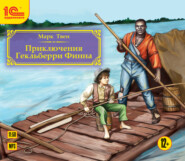По всем вопросам обращайтесь на: info@litportal.ru
(©) 2003-2025.
✖
A Tramp Abroad
Автор
Год написания книги
2015
Настройки чтения
Размер шрифта
Высота строк
Поля
This dignity and these knightly graces suggest the tournament, not the prize-fight. The laws are as curious as they are strict. For instance, the duelist may step forward from the line he is placed upon, if he chooses, but never back of it. If he steps back of it, or even leans back, it is considered that he did it to avoid a blow or contrive an advantage; so he is dismissed from his corps in disgrace. It would seem natural to step from under a descending sword unconsciously, and against one’s will and intent – yet this unconsciousness is not allowed. Again: if under the sudden anguish of a wound the receiver of it makes a grimace, he falls some degrees in the estimation of his fellows; his corps are ashamed of him: they call him “hare foot,” which is the German equivalent for chicken-hearted.
Chapter VII
In addition to the corps laws, there are some corps usages which have the force of laws.
Perhaps the president of a corps notices that one of the membership who is no longer an exempt – that is a freshman – has remained a sophomore some little time without volunteering to fight; some day, the president, instead of calling for volunteers, will appoint this sophomore to measure swords with a student of another corps; he is free to decline – everybody says so – there is no compulsion. This is all true – but I have not heard of any student who did decline; to decline and still remain in the corps would make him unpleasantly conspicuous, and properly so, since he knew, when he joined, that his main business, as a member, would be to fight. No, there is no law against declining – except the law of custom, which is confessedly stronger than written law, everywhere.
The ten men whose duels I had witnessed did not go away when their hurts were dressed, as I had supposed they would, but came back, one after another, as soon as they were free of the surgeon, and mingled with the assemblage in the dueling-room. The white-cap student who won the second fight witnessed the remaining three, and talked with us during the intermissions. He could not talk very well, because his opponent’s sword had cut his under-lip in two, and then the surgeon had sewed it together and overlaid it with a profusion of white plaster patches; neither could he eat easily, still he contrived to accomplish a slow and troublesome luncheon while the last duel was preparing. The man who was the worst hurt of all played chess while waiting to see this engagement. A good part of his face was covered with patches and bandages, and all the rest of his head was covered and concealed by them.
It is said that the student likes to appear on the street and in other public places in this kind of array, and that this predilection often keeps him out when exposure to rain or sun is a positive danger for him. Newly bandaged students are a very common spectacle in the public gardens of Heidelberg. It is also said that the student is glad to get wounds in the face, because the scars they leave will show so well there; and it is also said that these face wounds are so prized that youths have even been known to pull them apart from time to time and put red wine in them to make them heal badly and leave as ugly a scar as possible. It does not look reasonable, but it is roundly asserted and maintained, nevertheless; I am sure of one thing – scars are plenty enough in Germany, among the young men; and very grim ones they are, too. They crisscross the face in angry red welts, and are permanent and ineffaceable.
Some of these scars are of a very strange and dreadful aspect; and the effect is striking when several such accent the milder ones, which form a city map on a man’s face; they suggest the “burned district” then. We had often noticed that many of the students wore a colored silk band or ribbon diagonally across their breasts. It transpired that this signifies that the wearer has fought three duels in which a decision was reached – duels in which he either whipped or was whipped – for drawn battles do not count.[4 - From my diary. – Dined in a hotel a few miles up the Neckar, in a room whose walls were hung all over with framed portrait-groups of the Five Corps; some were recent, but many antedated photography, and were pictured in lithography – the dates ranged back to forty or fifty years ago. Nearly every individual wore the ribbon across his breast. In one portrait-group representing (as each of these pictures did) an entire Corps, I took pains to count the ribbons: there were twenty-seven members, and twenty-one of them wore that significant badge.]After a student has received his ribbon, he is “free”; he can cease from fighting, without reproach – except some one insult him; his president cannot appoint him to fight; he can volunteer if he wants to, or remain quiescent if he prefers to do so. Statistics show that he does not prefer to remain quiescent. They show that the duel has a singular fascination about it somewhere, for these free men, so far from resting upon the privilege of the badge, are always volunteering. A corps student told me it was of record that Prince Bismarck fought thirty-two of these duels in a single summer term when he was in college. So he fought twenty-nine after his badge had given him the right to retire from the field.
The statistics may be found to possess interest in several particulars. Two days in every week are devoted to dueling. The rule is rigid that there must be three duels on each of these days; there are generally more, but there cannot be fewer. There were six the day I was present; sometimes there are seven or eight. It is insisted that eight duels a week – four for each of the two days – is too low an average to draw a calculation from, but I will reckon from that basis, preferring an understatement to an overstatement of the case. This requires about four hundred and eighty or five hundred duelists a year – for in summer the college term is about three and a half months, and in winter it is four months and sometimes longer. Of the seven hundred and fifty students in the university at the time I am writing of, only eighty belonged to the five corps, and it is only these corps that do the dueling; occasionally other students borrow the arms and battleground of the five corps in order to settle a quarrel, but this does not happen every dueling-day.[5 - They have to borrow the arms because they could not get them elsewhere or otherwise. As I understand it, the public authorities, all over Germany, allow the five Corps to keep swords, but do not allow them to use them. This is law is rigid; it is only the execution of it that is lax.]Consequently eighty youths furnish the material for some two hundred and fifty duels a year. This average gives six fights a year to each of the eighty. This large work could not be accomplished if the badge-holders stood upon their privilege and ceased to volunteer.
Of course, where there is so much fighting, the students make it a point to keep themselves in constant practice with the foil. One often sees them, at the tables in the Castle grounds, using their whips or canes to illustrate some new sword trick which they have heard about; and between the duels, on the day whose history I have been writing, the swords were not always idle; every now and then we heard a succession of the keen hissing sounds which the sword makes when it is being put through its paces in the air, and this informed us that a student was practicing. Necessarily, this unceasing attention to the art develops an expert occasionally. He becomes famous in his own university, his renown spreads to other universities. He is invited to Gottingen, to fight with a Gottingen expert; if he is victorious, he will be invited to other colleges, or those colleges will send their experts to him. Americans and Englishmen often join one or another of the five corps. A year or two ago, the principal Heidelberg expert was a big Kentuckian; he was invited to the various universities and left a wake of victory behind him all about Germany; but at last a little student in Strasburg defeated him. There was formerly a student in Heidelberg who had picked up somewhere and mastered a peculiar trick of cutting up under instead of cleaving down from above. While the trick lasted he won in sixteen successive duels in his university; but by that time observers had discovered what his charm was, and how to break it, therefore his championship ceased.
A rule which forbids social intercourse between members of different corps is strict. In the dueling-house, in the parks, on the street, and anywhere and everywhere that the students go, caps of a color group themselves together. If all the tables in a public garden were crowded but one, and that one had two red-cap students at it and ten vacant places, the yellow-caps, the blue-caps, the white caps, and the green caps, seeking seats, would go by that table and not seem to see it, nor seem to be aware that there was such a table in the grounds. The student by whose courtesy we had been enabled to visit the dueling-place, wore the white cap – Prussian Corps. He introduced us to many white caps, but to none of another color. The corps etiquette extended even to us, who were strangers, and required us to group with the white corps only, and speak only with the white corps, while we were their guests, and keep aloof from the caps of the other colors. Once I wished to examine some of the swords, but an American student said, “It would not be quite polite; these now in the windows all have red hilts or blue; they will bring in some with white hilts presently, and those you can handle freely.” When a sword was broken in the first duel, I wanted a piece of it; but its hilt was the wrong color, so it was considered best and politest to await a properer season.
It was brought to me after the room was cleared, and I will now make a “life-size” sketch of it by tracing a line around it with my pen, to show the width of the weapon.The length of these swords is about three feet, and they are quite heavy. One’s disposition to cheer, during the course of the duels or at their close, was naturally strong, but corps etiquette forbade any demonstrations of this sort. However brilliant a contest or a victory might be, no sign or sound betrayed that any one was moved. A dignified gravity and repression were maintained at all times.
When the dueling was finished and we were ready to go, the gentlemen of the Prussian Corps to whom we had been introduced took off their caps in the courteous German way, and also shook hands; their brethren of the same order took off their caps and bowed, but without shaking hands; the gentlemen of the other corps treated us just as they would have treated white caps – they fell apart, apparently unconsciously, and left us an unobstructed pathway, but did not seem to see us or know we were there. If we had gone thither the following week as guests of another corps, the white caps, without meaning any offense, would have observed the etiquette of their order and ignored our presence.
[How strangely are comedy and tragedy blended in this life! I had not been home a full half-hour, after witnessing those playful sham-duels, when circumstances made it necessary for me to get ready immediately to assist personally at a real one – a duel with no effeminate limitation in the matter of results, but a battle to the death. An account of it, in the next Chapter, will show the reader that duels between boys, for fun, and duels between men in earnest, are very different affairs.]
Chapter VIII
The Great French Duel
Much as the modern French duel is ridiculed by certain smart people, it is in reality one of the most dangerous institutions of our day. Since it is always fought in the open air, the combatants are nearly sure to catch cold. M. Paul de Cassagnac, the most inveterate of the French duelists, had suffered so often in this way that he is at last a confirmed invalid; and the best physician in Paris has expressed the opinion that if he goes on dueling for fifteen or twenty years more – unless he forms the habit of fighting in a comfortable room where damps and draughts cannot intrude – he will eventually endanger his life. This ought to moderate the talk of those people who are so stubborn in maintaining that the French duel is the most health-giving of recreations because of the open-air exercise it affords. And it ought also to moderate that foolish talk about French duelists and socialist-hated monarchs being the only people who are immoral.
But it is time to get at my subject. As soon as I heard of the late fiery outbreak between M. Gambetta and M. Fourtou in the French Assembly, I knew that trouble must follow. I knew it because a long personal friendship with M. Gambetta revealed to me the desperate and implacable nature of the man. Vast as are his physical proportions, I knew that the thirst for revenge would penetrate to the remotest frontiers of his person.
I did not wait for him to call on me, but went at once to him. As I had expected, I found the brave fellow steeped in a profound French calm. I say French calm, because French calmness and English calmness have points of difference.
He was moving swiftly back and forth among the debris of his furniture, now and then staving chance fragments of it across the room with his foot; grinding a constant grist of curses through his set teeth; and halting every little while to deposit another handful of his hair on the pile which he had been building of it on the table.
He threw his arms around my neck, bent me over his stomach to his breast, kissed me on both cheeks, hugged me four or five times, and then placed me in his own arm-chair. As soon as I had got well again, we began business at once.
I said I supposed he would wish me to act as his second, and he said, “Of course.” I said I must be allowed to act under a French name, so that I might be shielded from obloquy in my country, in case of fatal results. He winced here, probably at the suggestion that dueling was not regarded with respect in America. However, he agreed to my requirement. This accounts for the fact that in all the newspaper reports M. Gambetta’s second was apparently a Frenchman.
First, we drew up my principal’s will. I insisted upon this, and stuck to my point. I said I had never heard of a man in his right mind going out to fight a duel without first making his will. He said he had never heard of a man in his right mind doing anything of the kind. When he had finished the will, he wished to proceed to a choice of his “last words.” He wanted to know how the following words, as a dying exclamation, struck me:
“I die for my God, for my country, for freedom of speech, for progress, and the universal brotherhood of man!”
I objected that this would require too lingering a death; it was a good speech for a consumptive, but not suited to the exigencies of the field of honor. We wrangled over a good many ante-mortem outbursts, but I finally got him to cut his obituary down to this, which he copied into his memorandum-book, purposing to get it by heart:
“I die that France might live.”
I said that this remark seemed to lack relevancy; but he said relevancy was a matter of no consequence in last words, what you wanted was thrill.
The next thing in order was the choice of weapons. My principal said he was not feeling well, and would leave that and the other details of the proposed meeting to me. Therefore I wrote the following note and carried it to M. Fourtou’s friend:
Sir: M. Gambetta accepts M. Fourtou’s challenge, and authorizes me to propose Plessis-Piquet as the place of meeting; tomorrow morning at daybreak as the time; and axes as the weapons.
I am, sir, with great respect,
Mark Twain.
M. Fourtou’s friend read this note, and shuddered. Then he turned to me, and said, with a suggestion of severity in his tone:
“Have you considered, sir, what would be the inevitable result of such a meeting as this?”
“Well, for instance, what would it be?”
“Bloodshed!”
“That’s about the size of it,” I said. “Now, if it is a fair question, what was your side proposing to shed?”
I had him there. He saw he had made a blunder, so he hastened to explain it away. He said he had spoken jestingly. Then he added that he and his principal would enjoy axes, and indeed prefer them, but such weapons were barred by the French code, and so I must change my proposal.
I walked the floor, turning the thing over in my mind, and finally it occurred to me that Gatling-guns at fifteen paces would be a likely way to get a verdict on the field of honor. So I framed this idea into a proposition.
But it was not accepted. The code was in the way again. I proposed rifles; then double-barreled shotguns; then Colt’s navy revolvers. These being all rejected, I reflected awhile, and sarcastically suggested brickbats at three-quarters of a mile. I always hate to fool away a humorous thing on a person who has no perception of humor; and it filled me with bitterness when this man went soberly away to submit the last proposition to his principal.
He came back presently and said his principal was charmed with the idea of brickbats at three-quarters of a mile, but must decline on account of the danger to disinterested parties passing between them. Then I said:
“Well, I am at the end of my string, now. Perhaps you would be good enough to suggest a weapon? Perhaps you have even had one in your mind all the time?”
His countenance brightened, and he said with alacrity:
“Oh, without doubt, monsieur!”
So he fell to hunting in his pockets – pocket after pocket, and he had plenty of them – muttering all the while, “Now, what could I have done with them?”
At last he was successful. He fished out of his vest pocket a couple of little things which I carried to the light and ascertained to be pistols. They were single-barreled and silver-mounted, and very dainty and pretty. I was not able to speak for emotion. I silently hung one of them on my watch-chain, and returned the other. My companion in crime now unrolled a postage-stamp containing several cartridges, and gave me one of them. I asked if he meant to signify by this that our men were to be allowed but one shot apiece. He replied that the French code permitted no more. I then begged him to go and suggest a distance, for my mind was growing weak and confused under the strain which had been put upon it. He named sixty-five yards. I nearly lost my patience. I said:
“Sixty-five yards, with these instruments? Squirt-guns would be deadlier at fifty. Consider, my friend, you and I are banded together to destroy life, not make it eternal.”
But with all my persuasions, all my arguments, I was only able to get him to reduce the distance to thirty-five yards; and even this concession he made with reluctance, and said with a sigh, “I wash my hands of this slaughter; on your head be it.”
There was nothing for me but to go home to my old lion-heart and tell my humiliating story. When I entered, M. Gambetta was laying his last lock of hair upon the altar. He sprang toward me, exclaiming:
“You have made the fatal arrangements – I see it in your eye!”
“I have.”
His face paled a trifle, and he leaned upon the table for support. He breathed thick and heavily for a moment or two, so tumultuous were his feelings; then he hoarsely whispered:

















